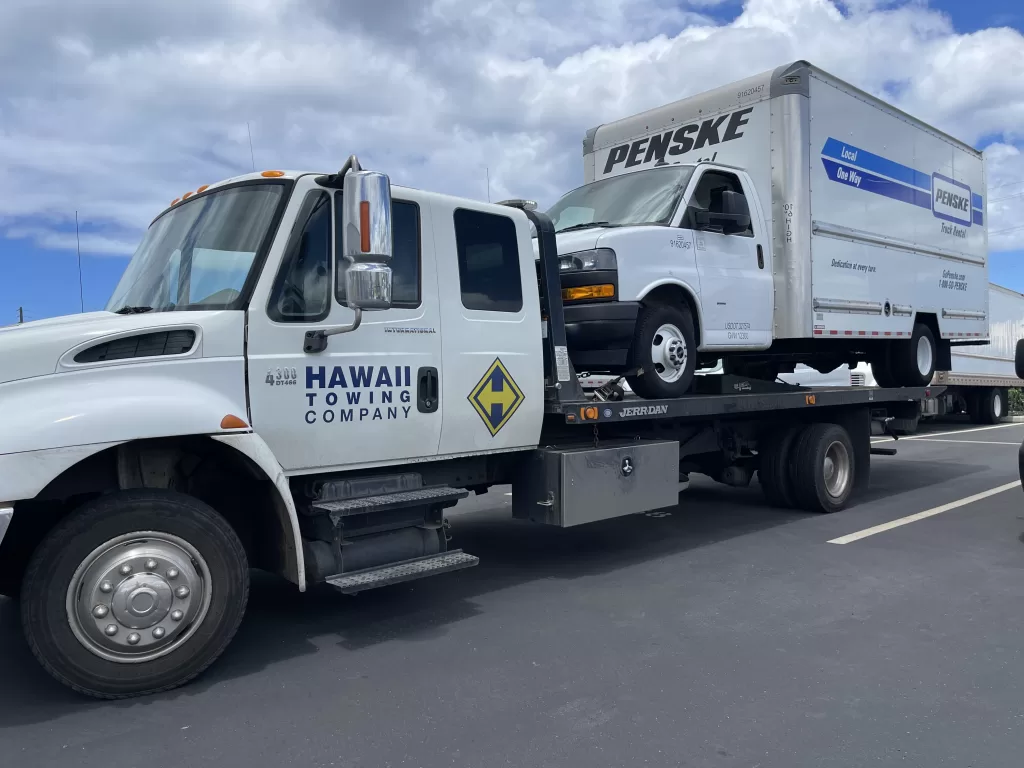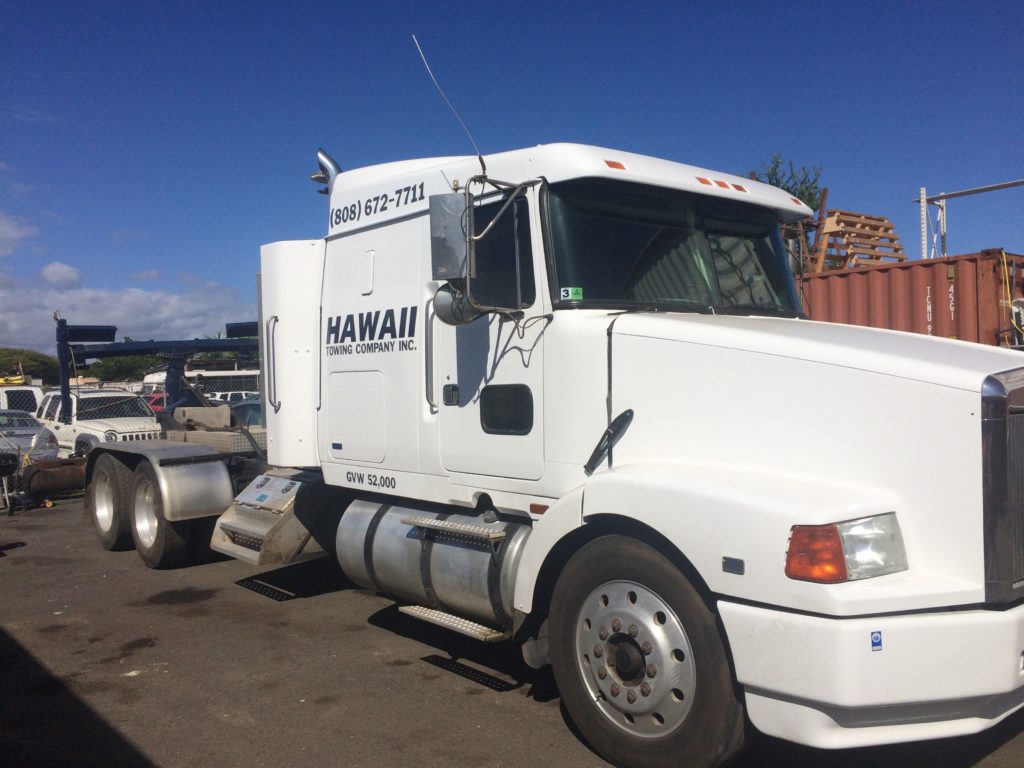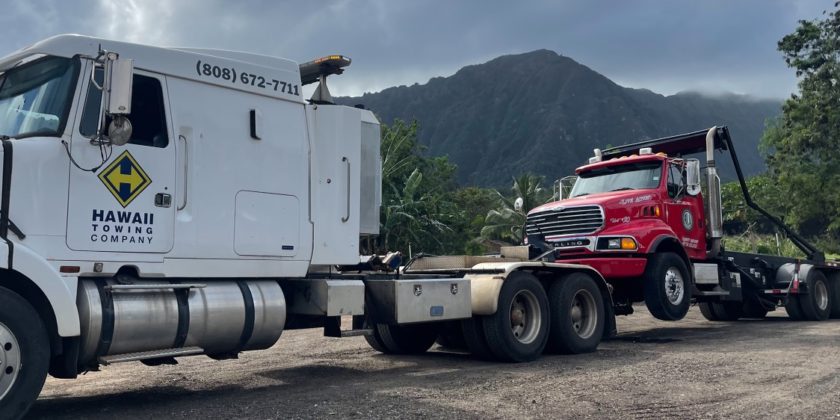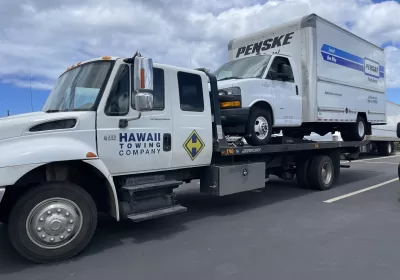Ensuring Efficiency and Safety in Complex Scenarios
In the world of transportation and logistics, heavy-duty towing plays a pivotal role in ensuring the movement of large-scale equipment and vehicles. Whether it’s a massive construction vehicle stuck in a remote location or a disabled tractor-trailer blocking a major highway, heavy-duty towing companies are the unsung heroes who come to the rescue. This blog delves into the intricacies of heavy-duty towing, exploring its challenges, technologies, and the critical role it plays in modern infrastructure.
Understanding Heavy Duty Towing

Heavy-duty towing is a specialized service crucial for handling oversized and overweight vehicles and equipment that surpass the capabilities of standard towing operations. Unlike the routine towing of passenger vehicles and light trucks, heavy-duty towing companies are equipped to manage the transportation of much larger items. This includes buses, RVs, semi-trucks, construction equipment, and even aircraft, which can weigh tens of thousands of pounds and extend well beyond typical vehicle dimensions.
The expertise required for heavy-duty towing goes beyond simply moving vehicles; it involves intricate knowledge of rigging, securing loads, and navigating complex logistics to ensure the safe and efficient transport of these massive objects. Heavy-duty towing operations are essential for maintaining traffic flow and safety on highways, swiftly clearing accident scenes, and supporting industrial operations where downtime can be costly and disruptive.
The Role of Heavy Duty Towing Companies
Heavy-duty towing companies are equipped with specialized trucks and equipment designed to handle the immense weight and size of heavy vehicles. These companies provide essential services in various scenarios:
- Accident Recovery: After a serious accident involving large vehicles, heavy-duty tow trucks are called to the scene to remove damaged vehicles safely and efficiently.
- Breakdown Assistance: When a commercial truck or construction vehicle breaks down on the road, heavy-duty towing services are crucial for quickly clearing the vehicle and restoring traffic flow.
- Construction Sites: Moving construction equipment between sites often requires heavy-duty towing services to transport bulldozers, cranes, and other heavy machinery.
Challenges in Heavy Duty Towing
Heavy-duty towing presents a host of challenges that demand specialized expertise and equipment. One of the primary hurdles is the sheer weight and size of the vehicles being towed, which can require heavy-duty tow trucks capable of handling immense loads. Maneuvering these vehicles safely, especially in tight or hazardous conditions such as busy highways or remote off-road locations, requires skilled operators trained in advanced towing techniques.
Moreover, the technical complexity of heavy-duty towing operations necessitates thorough planning and execution. Securing oversized vehicles properly to prevent shifting during transport is critical for both operational safety and regulatory compliance. Additionally, responding to emergencies like overturned or disabled trucks demands swift and precise action to minimize traffic disruptions and ensure the safety of all involved. Overcoming these challenges requires not only robust equipment and technical proficiency but also a deep understanding of safety protocols and regulatory requirements in various jurisdictions.
Technologies in Heavy Duty Towing
Technological advancements have revolutionized the landscape of heavy-duty towing, equipping operators with tools that enhance efficiency, safety, and precision. One of the pivotal technologies is advanced hydraulic systems integrated into modern heavy-duty tow trucks. These systems provide unparalleled lifting capacity and control, allowing operators to safely maneuver and stabilize heavy vehicles during towing operations. Additionally, GPS and mapping technologies have streamlined logistics by enabling operators to navigate efficiently to the precise location of disabled vehicles, reducing response times and improving overall service delivery.
Furthermore, enhanced safety features have become standard in heavy-duty tow trucks. Innovations such as stabilizing outriggers and advanced lighting systems enhance visibility and operational safety, particularly during nighttime or adverse weather conditions. These technological advancements not only elevate the capabilities of heavy-duty towing companies but also ensure smoother and more reliable assistance to clients facing vehicle breakdowns or accidents.
Specialized Equipment Used in Heavy Duty Towing

Heavy-duty towing companies utilize a range of specialized equipment to handle diverse towing scenarios:
- Rotators: These heavy-duty tow trucks feature rotating recovery booms that can lift and rotate disabled vehicles, making them ideal for complex recovery operations.
- Flatbed Trailers: Flatbed trailers are used for transporting vehicles that cannot be towed conventionally, such as heavily damaged or immobilized vehicles.
- Winches and Chains: Heavy-duty winches and chains are essential for securely fastening and towing large vehicles over long distances.
Training and Certification for Heavy Duty Towing
Operating heavy-duty tow trucks requires specialized training and certification to ensure safe and efficient towing operations:
- Commercial Driver’s License (CDL): Towing operators must hold a CDL with specific endorsements that authorize them to operate heavy-duty vehicles.
- Industry Certifications: Many towing companies provide training programs and certifications that cover vehicle recovery techniques, safety protocols, and equipment operation.
The Environmental Impact of Heavy Duty Towing
Heavy-duty towing operations, while essential for public safety and infrastructure maintenance, do contribute to environmental impacts primarily through fuel consumption and emissions from heavy-duty tow trucks. These vehicles typically operate powerful engines necessary to haul large loads, consuming significant amounts of fuel and emitting pollutants such as carbon dioxide, nitrogen oxides, and particulate matter. These emissions can contribute to air pollution and greenhouse gas accumulation, impacting local air quality and potentially exacerbating climate change.
However, ongoing advancements in engine technology and fuel efficiency are mitigating these environmental concerns. Manufacturers are developing more efficient engines and integrating technologies like hybrid and electric powertrains into heavy-duty tow trucks. These innovations reduce fuel consumption and emissions, offering a cleaner alternative to traditional diesel engines. Moreover, some towing companies are adopting eco-friendly practices such as fleet management systems to optimize routes and reduce idle time, further minimizing their environmental footprint. As the industry continues to innovate, heavy-duty towing operations are poised to become more sustainable and environmentally responsible in the future.
The Future of Heavy Duty Towing
The future of heavy-duty towing holds promise with ongoing technological advancements and evolving industry trends. As technology continues to progress, heavy-duty tow trucks are likely to adopt more sophisticated features such as autonomous capabilities and advanced sensor systems. These innovations could revolutionize the efficiency and safety of towing operations, reducing human error and enhancing response times. Moreover, the integration of electric and hybrid powertrains into heavy-duty tow trucks is anticipated to increase, offering cleaner and quieter operations that align with growing environmental regulations and sustainability goals.
Additionally, as the transportation sector evolves, heavy-duty towing companies may find themselves supporting new types of vehicles, such as autonomous trucks and electric buses. Adaptation to these changes will require ongoing training and certification for operators, ensuring they remain equipped to handle emerging technologies and vehicle types effectively. Overall, the future of heavy-duty towing looks towards greater efficiency, reduced environmental impact, and enhanced capabilities to meet the evolving demands of modern transportation and logistics.
Conclusion
Heavy-duty towing provided by Hawaii Towing Company Inc. plays a critical role in managing the transportation of oversized vehicles and equipment essential to modern infrastructure. From handling massive construction machinery to clearing accident scenes swiftly and safely, their specialized services ensure the smooth flow of traffic and support industrial operations. While heavy-duty towing operations do pose environmental challenges, advancements in technology, such as hybrid and electric vehicle integration, are paving the way for more sustainable practices.
Looking ahead, the future of heavy-duty towing holds exciting possibilities with innovations like autonomous capabilities and advanced fuel-efficient technologies on the horizon. As Hawaii Towing Company Inc. continues to evolve and adapt to these changes, their commitment to safety, efficiency, and environmental responsibility remains paramount, ensuring they meet the dynamic demands of large-scale transportation in the years to come.


